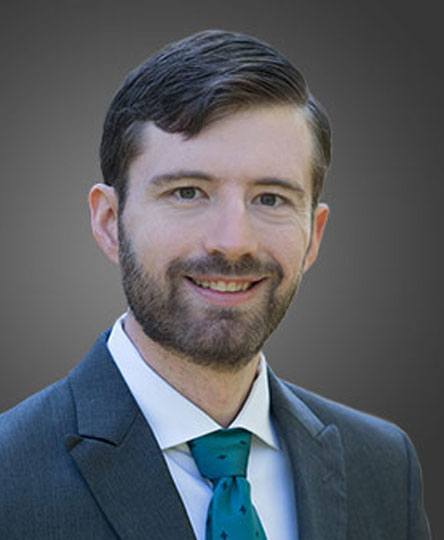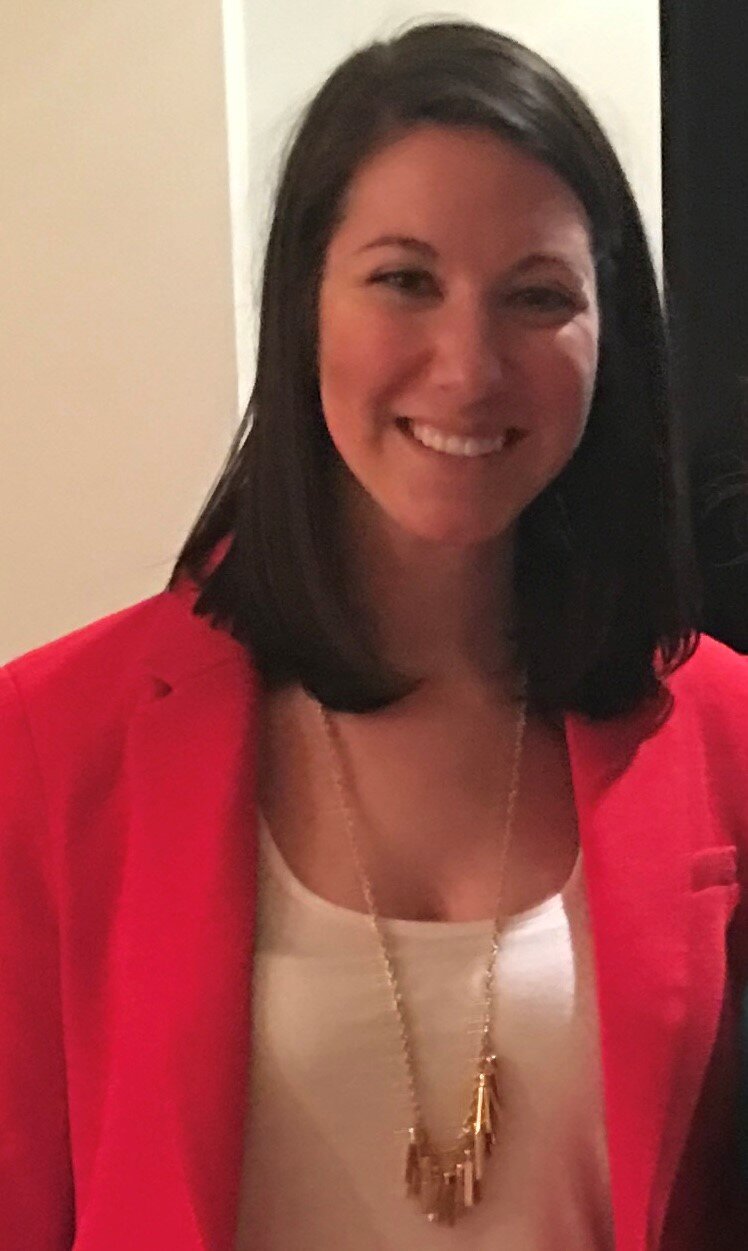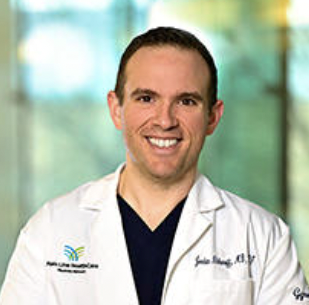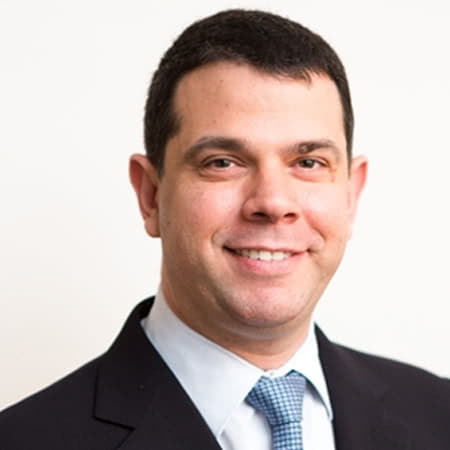
Taylor Reyes PT, DPT
Visit types: Office/Hospital.
Spoken languages: English and Spanish
Interpreting services for other languages: No
Philosophy of care and typical treatment strategies: My philosophy in caring for my patients with endometriosis involves education in self-management, manual therapy techniques, managing the autonomic nervous system, and anti-inflammatory nutritional counseling within the scope of PT.
Self-management is a huge key to empowerment as navigating endometriosis symptoms is sometimes a lifelong journey. I want my patients to feel empowered and not helpless if they are not able to see a provider during a flare-up. Self-management may include home exercise programs, yin-based yoga, castor oil packing, and more.
I incorporate visceral, neurovascular, fascial, joint, and more in my manual therapy approach. Often a patient’s issue goes beyond the pelvis so it’s important to consider a total body approach. Neuromuscular reeducation and motor control training is a must with any manual therapy. Some of the modalities I use to assist in manual therapy are trigger point dry needling, neurostim microcurrent for scar tissue, and cupping. Orofacial myofunctional therapy and cranial therapy are incorporated as needed especially if a patient needs to improve their overall airway function which aids in improving the autonomic nervous system.
My patients are educated in the basics of anti-inflammatory nutrition support and downregulation of the nervous system. If their needs go beyond my scope they are referred to specific providers that also specialize in autoimmune and endometriosis conditions.

Brittany Gosse-Jesus PT, DPT
Visit types: Office/Hospital.
Spoken languages: English
Interpreting services for other languages: Yes
Philosophy of care and typical treatment strategies: In caring for patients with pelvic floor-related conditions, including endometriosis, I aim to assess the individual holistically. Recognizing that all systems of the body have interactions with one another and each system must be optimal in function on its own in order to facilitate optimal function and well-being of the whole person drives my clinical decision-making and assessment process. In physical therapy sessions, my aim is to identify and address musculoskeletal and neuromuscular related factors contributing to a person’s pain from endometriosis whether that be related to chronic inflammation, scar tissue, past or recent surgical intervention, secondary muscle tension, or a combination of factors. I utilize visceral mobilization, myofascial techniques, dry needling (basic and advanced techniques- to include pelvic floor), re-education of the nervous and musculoskeletal systems to help address and individuals presenting complaints. I believe that the answer always lies within the patient and I dedicate time in each session, especially the first session, to hear someone’s story, their history, their complaints and really get to know them to help determine driving factors for their symptoms and address the things that are most important to the individual in front of me. I also value interdisciplinary care and work with other healthcare providers to assure that all areas are being assessed and addressed as indicated. The gold-standard of care for endometriosis is important to me and I strive to provide connection to those resources whenever possible. I also include education of the patient and recommendation of resources regarding endometriosis throughout treatment sessions because I have seen the power that knowledge has. Often in the world of endometriosis management the patient is forced to be their own strongest advocate and I want my patients to be armed with as much knowledge as possible. ‘Knowledge is power’ and I think it is one of the most valuable interventions I can provide to my patient’s in addition to the manual work and other therapeutic modalities I have to utilize during treatment sessions.

Dr. Ethan Fram
Dr. Ethan Fram, M.D. Urologist
City: Tualatin, Oregon
Areas of Expertise: Interstitial Cystitis, Bladder Botox, Urinary Incontinence

Elizabeth Trausch PT, DPT
Visit types: Office/Hospital.
Spoken languages: English, Spanish
Interpreting services for other languages: No
Philosophy of care and typical treatment strategies: I have extensive training from Ginger Garner and Jessica Drummond, as well as being CAPP certified and a CAPP case study reviewer for 5 years. My treatment for endometriosis-related pain includes downtraining the nervous system, the abdominal and pelvic floor muscles, relaxation techniques, general anti-inflammatory diet advice, internal and external soft tissue mobilization. I would include yoga based therapies, referrals for counseling when needed, stretching when something is tight and strengthening when pain is lower, if indicated. I have barral pelvic visceral mobilization training, but do not use it other than for the knowledge of the location of the organs.

Brianna Blohm PT, DPT
Visit types: Office/Hospital
Spoken languages: English
Interpreting services for other languages: Yes
Philosophy of care and typical treatment strategies: Treatment for endometriosis should be multi-faceted. In my practice, I include manual soft tissue techniques, including STM, trigger point release, and contract/relax work, to internal and external pelvic floor musculature. I also perform visceral mobilization for the pelvic floor and GI system. I include diet and bladder education for optimal GI functioning based on patients’ individual needs. I also include isolated and functional training progressions for lumbopelvic and postural stability. Further, stress management, mental health awareness, and healthy sleeping patterns are included in my education.

Dr. Michael P. Gardner
Dr. Michael P. Gardner, M.D.. Urologist
City: Tualatin, Oregon
Areas of Expertise: Interstitial Cystitis, Bladder Botox, Urinary Incontinence

Dr. Jessica Kresowik
Dr. Jessica Kresowik, Endometriosis Specialist, Minimally Invasive Gynecologic Surgeon, Reproductive Endocrinologist
City: Iowa City, Iowa, USA

Dr. Jordan Klebanoff
Dr. Jordan Klebanoff, M.D.
Endometriosis Specialist, Gynecologist, Minimally Invasive Gynecologic Surgeon
Summary: If you’re seeking expert care for endometriosis, Dr Jordan Klebanoff is a trusted specialist dedicated to helping women improve their quality of life. As both a gynecologist and minimally invasive surgeon, Dr Klebanoff brings deep expertise and compassionate care to each patient he treats in Philadelphia, PA.
Dr Klebanoff understands that endometriosis is a complex condition with many possible causes, including embryologic, genetic, and environmental factors. He specializes in wide excision surgery, which aims to remove even microscopic disease and offer lasting relief.
For patients who aren’t considering surgery, Dr Jordan Klebanoff offers personalized medical management, including non-narcotic pain relief and hormonal therapies. He also works closely with pelvic floor physical therapists, pain specialists, and gastroenterologists to provide a comprehensive, patient-centered approach to care before and after surgery.
City: Philadelphia, PA, USA
Philosophy: I believe that we have an incomplete understanding of the origins of endometriosis, however, that the theory of retrograde menstruation as the sole explanation falls well short of describing this complex disease. My belief is that there are likely many factors to explain this disease embryologic, genetic, environmental, etc. The theory that I believe most completely and rationally explains this disease process is an issue during embryologic development. This is why I believe excision surgery most thoroughly improves quality of life. Wide excision surgery will remove microscopic disease whereas localized excisions or ablation can fall short.
Medication: For patients not immediately, or ever, interested in surgery I will utilize non-narcotic pain medications and hormonal regulation where appropriate. Whether or not I recommend hormonal suppression, most often with an oral progestin, following excision surgery is based on individual patient preference and expectation. My typical counseling for patients is that whether it be medical management or surgical management my mission will always be to continue to improve quality of life in any way that I can.
Approach to Persistent Pain After Surgery: My approach to persistent symptoms following surgery is consistent to my approach before surgery. Because pain from endometriosis is often multifactorial I work closely with pelvic floor physical therapists, pain management specialists, sexual medicine providers, and gastroenterologists both before and after surgery. My counseling of patients for any symptoms after an excision surgery patients can depend on the specific symptom or what therapies have previously been tried and failed.

Dr. Tayyaba Ahmed
Dr. Tayyaba Ahmed, DO.. Physiatrist, Pelvic Pain Specialist
City: New York City, New York
Areas of Expertise: Pelvic Pain

Dr. Allyson Shrikhande
Dr. Allyson Shrikhande, M.D.. Pelvic Pain Specialist
City: New York City, New York
Areas of Expertise: pelvic pain and pelvic floor muscle dysfunction

Dr. Sonia Bahlani
Dr. Sonia Bahlani, M.D.. Pelvic Pain Specialist
City: New York City, New York
Areas of Expertise: Vulvodynia, Interstitial Cystitis, Vulvar Itching, Clitoral Pain, Chronic Pelvic Pain, Hypoactive Sexual Desire Disorder, Pudendal Neuralgia, Hypertonic Pelvic Floor Muscle Dysfunction

Dr. Yaniv Larish
Dr. Yaniv Larish, M.D.. Urologist With Expertise in Endometriosis
City: New York City, New York
Areas of Expertise: Interstitial Cystitis, Overactive Bladder, Bladder Botox, Axonics, and InterStim Therapy.

